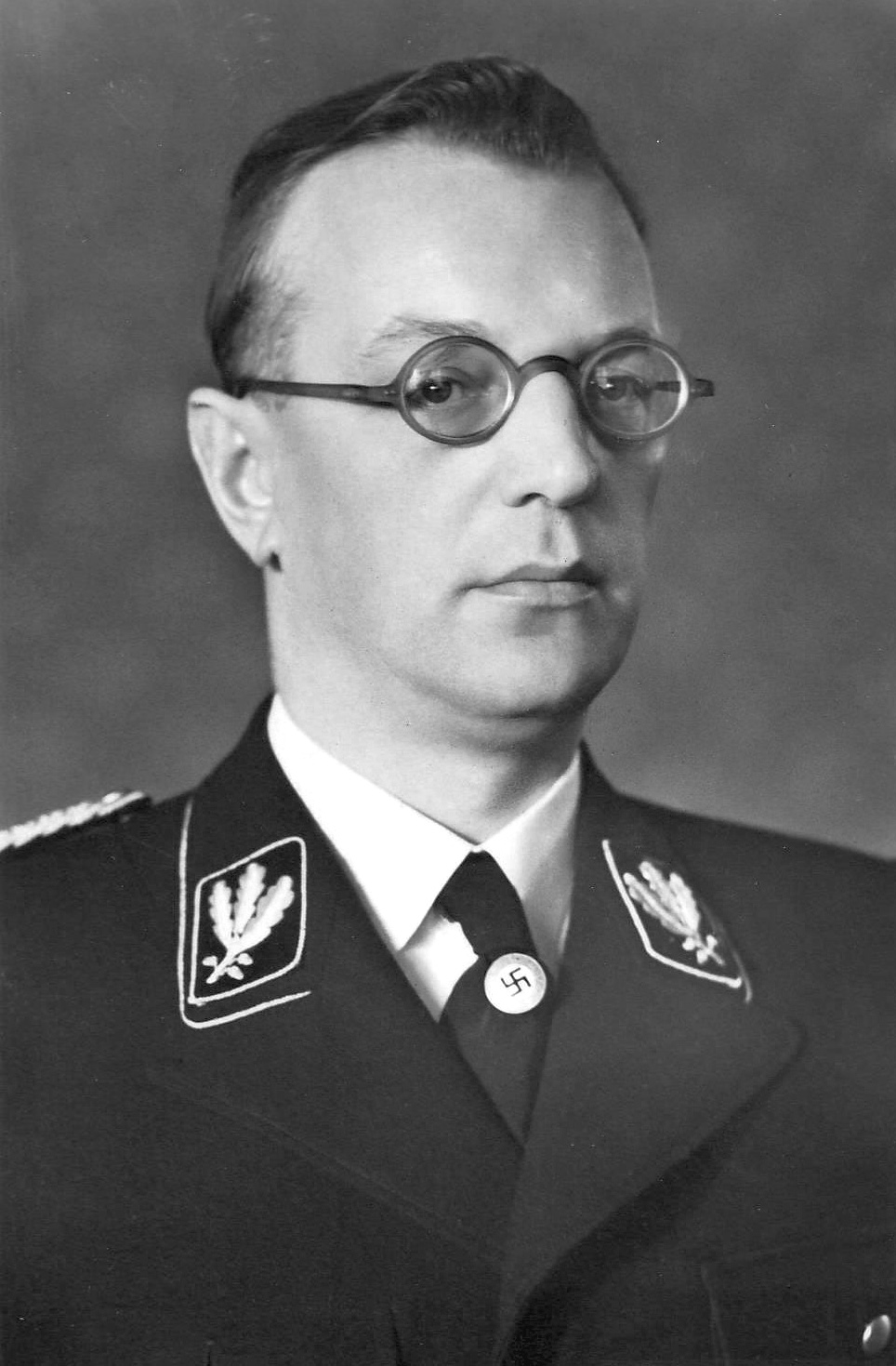Decree
of the Reich Commissar for the occupied Dutch territories re the confiscation of property.
By virtue of para 5 of the Fuehrer's Decree of the 18th, May 1940 (R.G.B1. I p. 778) about the exercise of the powers of government in the Netherlands. I order:
Para 1.
(1) The property of persons or associations that have assisted, or are assisting or of whom it is to be assumed that they will assist anti-German or anti-Reich efforts can be confiscated in whole or in part.
(2) The same applies to goods and rights which have served, are serving or are suitable for serving to further the efforts named in sub-para 1.
Para 2.
(1) The organs of the German Security Police can temporarily seize property, goods or rights in a preparation for their confiscation. The seizure is carried out by public proclamation or written declaration to the owner of the property, the direct possessor of the goods or the holder of the right.
(2) The organs of the German Security Police can appoint a temporary administrator of the property, goods and rights seized, either simultaneously with or after the seizure. The temporary
590
2921-PS
administrator can take such measures as are customary within the framework of regular administration.
(3) By the seizure, the persons named in para 2, sub-para 1
lose the right to dispose of the thing seized without the permission of the organ which has ordered the seizure, or, where a temporary administrator has been appointed, of this temporary administration. '
(4) If a book open to inspection by the public is kept about goods or right which have been seized, with the object of assisting juridicio-commercial transactions, the seizure is to be entered in this book free of charge on the demand of the organ which has ordered the seizure or, where a temporary administrator has been appointed, by this temporary administrator.
(5) Goods or a right which have been seized can not be acquired in good faith when an entry in accordance with sub-para 4 exists, or where the seizure has been publicly announced.
(6) The seizure is to be cancelled if, in the opinion of the organ which has ordered the seizure, it has become unnecessary or impracticable in view of the circumstances of the case. The cancellation of the s.eizure is carried out in the same way as it is ordered (para 2, sub-para 1). If an entry in conformity with sub-para 4 has been made, this is to be cancelled free of charge.
Para 3.
If goods are, at the time of their seizure, not in the custody of their owner they can not be confiscated if the owner announces his right within one month to the higher S.S. and Police Chief, or, where a temporary administrator has been appointed, to the latter, unless the owner intended, by handing over the goods to assist the efforts named in para 1.
Para 4. , '
(1) Confiscation-takes place by a Decree of the Reich Commissar for the occupied Dutch territories or by the authorities denoted by him; it comes into effect on its public announcement or its communication to those concerned. Para 2, sub-para 4 applies mutatis mutandis.
(2) The confiscated property etc. is to be used for purposes of public benefit in the occupied Dutch territories. The Reich Commissar will publish special regulations about this.
Para 5.
Associations of persons whose property has been confiscated will be dissolved. No winding up will take place.
591
292I-PS
292I-PS
Para 6.
(1) Responsibility for the debts of the owner of confiscated property and for the obligations connected with confiscated goods and rights remain in existence to the extent that they are covered by the amount of the property or by the selling value of the goods and rights. Rights to confiscated landed estate remain in force.
(2) In case of debts exceeding value, the thing confiscated, is to be divided up among those who are, in accordance with subpara 1, the legal creditors and in conformity with the existing Dutch bankruptcy laws.
Para 7.
This Decree comes into force on the day of its publication.
The Hague, 4th July 1940.
The Reich Commissar for the occupied Dutch territories:
SEYSS-INQUART.
Decree authorizing the confiscation (by the security police) of property belonging to or used by those engaging in anti-German activity (or presumed to be engaging in it)
Authors
Arthur Seyss-Inquart (Nazi official, Austria, Poland, Netherlands)
Arthur Seyss-Inquart
Austrian Nazi politician, and Nazi ruler of occupied Netherlands, convicted of crimes against humanity and sentenced to death (1892-1946)

- Born: 1892-07-22 (Stonařov)
- Died: 1946-10-16 (Nuremberg)
- Country of citizenship: Austria; Austria-Hungary; Nazi Germany
- Occupation: jurist; lawyer; politician
- Member of political party: Fatherland Front; Nazi Party
- Member of: Schutzstaffel
- Position held: Federal Chancellor of Austria (period: 1938-03-11 through 1938-03-13; replaced by: Anschluss; replaces: Kurt Schuschnigg); Federal Minister for Foreign Affairs (period: 1945-04-30 through 1945-05-02; replaced by: Lutz Graf Schwerin von Krosigk; replaces: Joachim von Ribbentrop); Reichskommissar; member of the Reichstag of Nazi Germany
- Employer: Austrian Federal Government; Reichskommissariat Niederlande
Date: 04 July 1940
Literal Title: Decree of the Reich Commissar for the occupied Dutch territories re the confiscation of property.
Defendants: Joachim Ribbentrop, von, Arthur Seyss-Inquart
Total Pages: 2
Language of Text: English
Source of Text: Nazi conspiracy and aggression (Office of United States Chief of Counsel for Prosecution of Axis Criminality. Washington, D.C. : U.S. Government Printing Office, 1946.)
Evidence Code: PS-2921
Citation: IMT (page 2378)
HLSL Item No.: 451971
Document Summary
PS-2921: Directives by Seyss-Inquart, re confiscation in the Netherlands of property of individuals or organizations hostile to the Reich